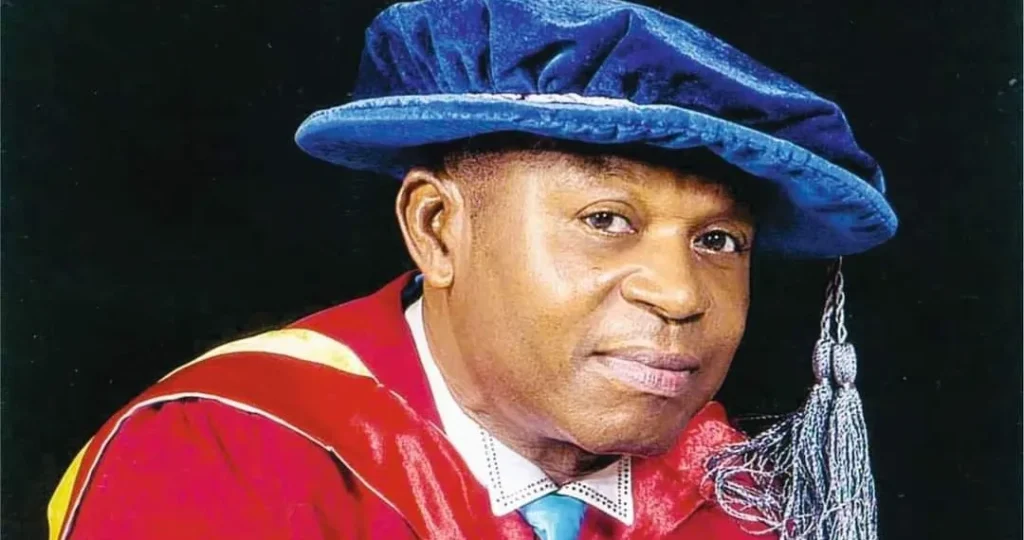The role of academia in any society is crucial in shaping the future of a nation. Universities, colleges, and other higher institutions of learning are meant to be centers of excellence, integrity, and progress.
They are entrusted with the responsibility of producing future leaders, innovators, and professionals who will drive economic growth and social transformation.

However, in recent years, corruption in academia has become an alarming issue, raising serious concerns about the integrity of the education system and its long-term impact on national development.
The Case of Prof. Ignatius Uduk: A Stark Reminder
The recent sentencing of Prof. Ignatius Uduk of the University of Uyo (UNIUYO) to three years in prison for electoral fraud is a glaring example of how corruption has infiltrated the academic space.
Prof. Uduk was convicted for publishing false election results and committing perjury in the 2019 state House of Assembly election in Akwa Ibom North-West. As a returning officer for the election in Essien Udim State Constituency, his primary duty was to uphold the principles of fairness and democracy.
Instead, he compromised the electoral process, thereby undermining the trust that society places in academia.
This incident highlights a disturbing reality: those who are supposed to be custodians of truth and moral values are sometimes at the forefront of unethical practices.
If a university professor, who is meant to mold young minds, can engage in such fraudulent activities, what does that say about the state of the education sector?
Forms of Corruption in Academia
Corruption in academia manifests in several ways, including but not limited to:
- Examination Malpractice – Some lecturers and administrators accept bribes from students in exchange for grades, thereby eroding the credibility of academic achievements.
- Plagiarism and Research Fraud – Academics engage in unethical research practices, including data fabrication, plagiarism, and falsification of research findings.
- Admission Scandals – Admission processes are sometimes compromised, with unqualified candidates gaining entry into institutions through bribery and favoritism.
- Sexual Exploitation – Some lecturers demand sexual favors from students in exchange for grades or academic progress.
- Misappropriation of Funds – Funds meant for educational development are often siphoned for personal use, leading to poorly equipped institutions and substandard learning conditions.
- Electoral Manipulation – As seen in the case of Prof. Uduk, some academics are co-opted into political corruption, aiding and abetting election malpractices.
The Impact of Academic Corruption on Society
The consequences of corruption in academia are far-reaching and detrimental to national development. Some of the major effects include:
- Erosion of Public Trust – When those entrusted with knowledge dissemination and moral upbringing engage in corruption, it creates widespread disillusionment among students and the general public.
- Production of Incompetent Graduates – If academic integrity is compromised, graduates may lack the necessary skills and knowledge required to contribute meaningfully to society.
- Weak Democratic Institutions – When professors and other academics engage in electoral fraud, it weakens democracy and promotes bad governance.
- Stunted National Growth – Corruption in education affects innovation and research, ultimately slowing down national progress and economic development.
Restoring Integrity to Academia
To curb corruption in academia, several measures need to be put in place:
- Strict Enforcement of Laws – Academics found guilty of corruption should face legal consequences, as demonstrated in the Prof. Uduk case.
- Strengthening Ethical Standards – Universities should implement strict ethical guidelines and codes of conduct for staff and students.
- Whistleblower Protection – Individuals who expose corruption should be protected to encourage transparency.
- Technological Interventions – The use of digital tools for examinations, admissions, and grading can help reduce human interference and corruption.
- Value-Based Education – Institutions should emphasize moral and ethical education to instill a culture of integrity among students and staff.
The sentencing of Prof. Ignatius Uduk should serve as a wake-up call to the academic community and society at large.
Corruption in academia is a betrayal of the sacred trust placed in educators and intellectuals.
If not addressed urgently, it will continue to undermine national development and the future of millions of students.
The fight against corruption must start from the very institutions that are meant to be the bedrock of knowledge, integrity, and progress. Only through a collective effort can academia reclaim its lost glory and fulfill its role in nation-building.

